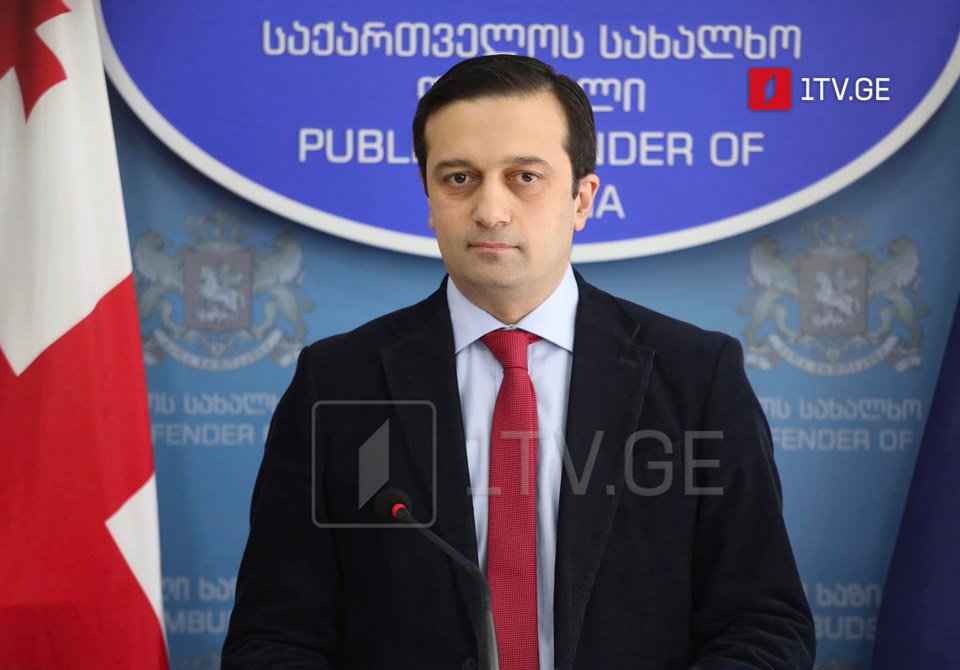
On the 15th anniversary of the August 2008 war, Georgia’s Public Defender, Levan Ioseliani, released a statement.
The Public Defender highlights that the occupation regime persists in the practice of unlawfully detaining individuals and engaging in the illegal act of “borderization”.
Ioseliani emphasizes the importance of utilizing all available international mechanisms and collaborating with the international community to safeguard the rights of those residing in the occupied regions.
Below is his full statement as delivered:
“15 years have passed since the August 2008 war between Russia and Georgia. The consequences of the armed conflict are still acutely felt by the population remaining in the occupied territory and living in the vicinity of the dividing line. As a result of the 2008 hostilities, 27,582 internally displaced persons have been registered.
The Georgian side lost 170 employees of the Ministry of Defence, 14 police officers and 224 civilians as a result of the August 2008 Russia-Georgia hostilities. The total number of wounded/injured military and civilians is 2,232.
The occupation regime still leaves unpunished the persons responsible for the murder of four Georgian citizens – Davit Basharuli, Giga Otkhozoria, Archil Tatunashvili and Irakli Kvaratskhelia.
The occupation regime still continues the practice of illegal detention of persons for the so-called illegal border crossing. According to the official data, from 2008 to the present day, the occupation regime illegally detained 3,439 people for the so-called illegal border crossing, 1,935 of them in the direction of occupied Abkhazia, and 1,504 in the direction of occupied Tskhinvali.
It is particularly noteworthy that the number of illegal detentions for the so-called border crossing has increased in recent years. As of today, 9 citizens remain in illegal detention in the occupied territories of Georgia.
Violation of property rights caused by the illegal so-called borderization remains a daily challenge for the population living near the occupation line. The occupation regime is trying to portray this illegal process as the so-called state border arrangement process and to establish the occupied regions as independent subjects. Since 2008, more than 56 km of barbed wire, fences and various artificial barriers have been erected by the Russian occupation forces in the direction of the occupied Tskhinvali region, while the length of artificial barriers in the direction of occupied Abkhazia exceeds 49 km.
Purposeful discrimination of the ethnically Georgian population and violation of various rights in the occupied territories are still reported. These include restriction of free movement, denial of access to education in the native language, restrictions on the issuance of de facto documentation, violation of the right to life, lack of access to health care and other essential services.
The Public Defender of Georgia calls on the authorities of Georgia to strengthen pressure on the occupation regime by using all international mechanisms and with the involvement of the international community in order to protect the rights of people living in the occupied regions. At the same time, efforts should not be spared to expand and strengthen the dialogue between the artificially divided society.
The responsibility for human rights violations committed in the occupied territories rests with the Russian Federation as the state exercising effective control. In this regard, the judgement of the European Court of Human Rights of January 21, 2021, in the case of Georgia v. Russia II is worth noting, by which the Court held that Russia continued to exercise effective control in the occupied Tskhinvali and Abkhazia regions. The judgement of April 28, 2023, is also worth noting, by which the Russian Federation was ordered to pay compensation to Georgia within the framework of just satisfaction.”





